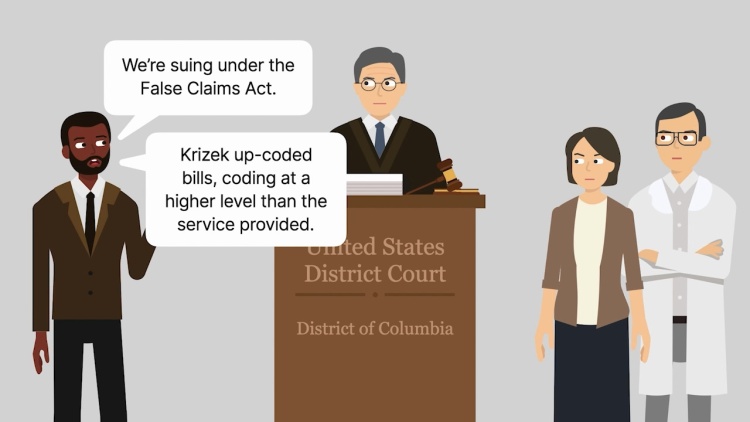United States v. Krizek
United States District Court for the District of Columbia
859 F. Supp. 5 (1994)
- Written by Craig Conway, LLM
Facts
Dr. Krizek was a psychiatrist who treated a number of elderly and poor Medicare and Medicaid patients. His wife was responsible for overseeing the office’s billing operation. When Krizek sought financial reimbursement from the Medicare and Medicaid programs for providing psychotherapy to patients, he was required to complete a Health Care Financing Administration (HCFA) 1500 Form. The form contained identifying patient information as well as a description of the treatment provided. The description was identified through a standard set of numerical codes called Current Procedural Terminology (CPT) codes. The federal government brought a five-count complaint against the Krizeks for providing medically unnecessary services under common law and for submitting false reimbursement claims in violation of the False Claims Act (FCA), 31 U.S.C. §§ 3729-3731. Specifically, the government alleged that the Krizeks misused the CPT codes by “up-coding” the bills for a large number of patients in order to receive higher reimbursements. During a bench trial, the court significantly narrowed the scope of claims to be examined from 8,002 to 200 from seven patients that the government believed were representative of Krizek’s improper billing and treatment practices.
Rule of Law
Issue
Holding and Reasoning (Sporkin, J.)
What to do next…
Here's why 899,000 law students have relied on our case briefs:
- Written by law professors and practitioners, not other law students. 47,000 briefs, keyed to 994 casebooks. Top-notch customer support.
- The right amount of information, includes the facts, issues, rule of law, holding and reasoning, and any concurrences and dissents.
- Access in your classes, works on your mobile and tablet. Massive library of related video lessons and high quality multiple-choice questions.
- Easy to use, uniform format for every case brief. Written in plain English, not in legalese. Our briefs summarize and simplify; they don’t just repeat the court’s language.





